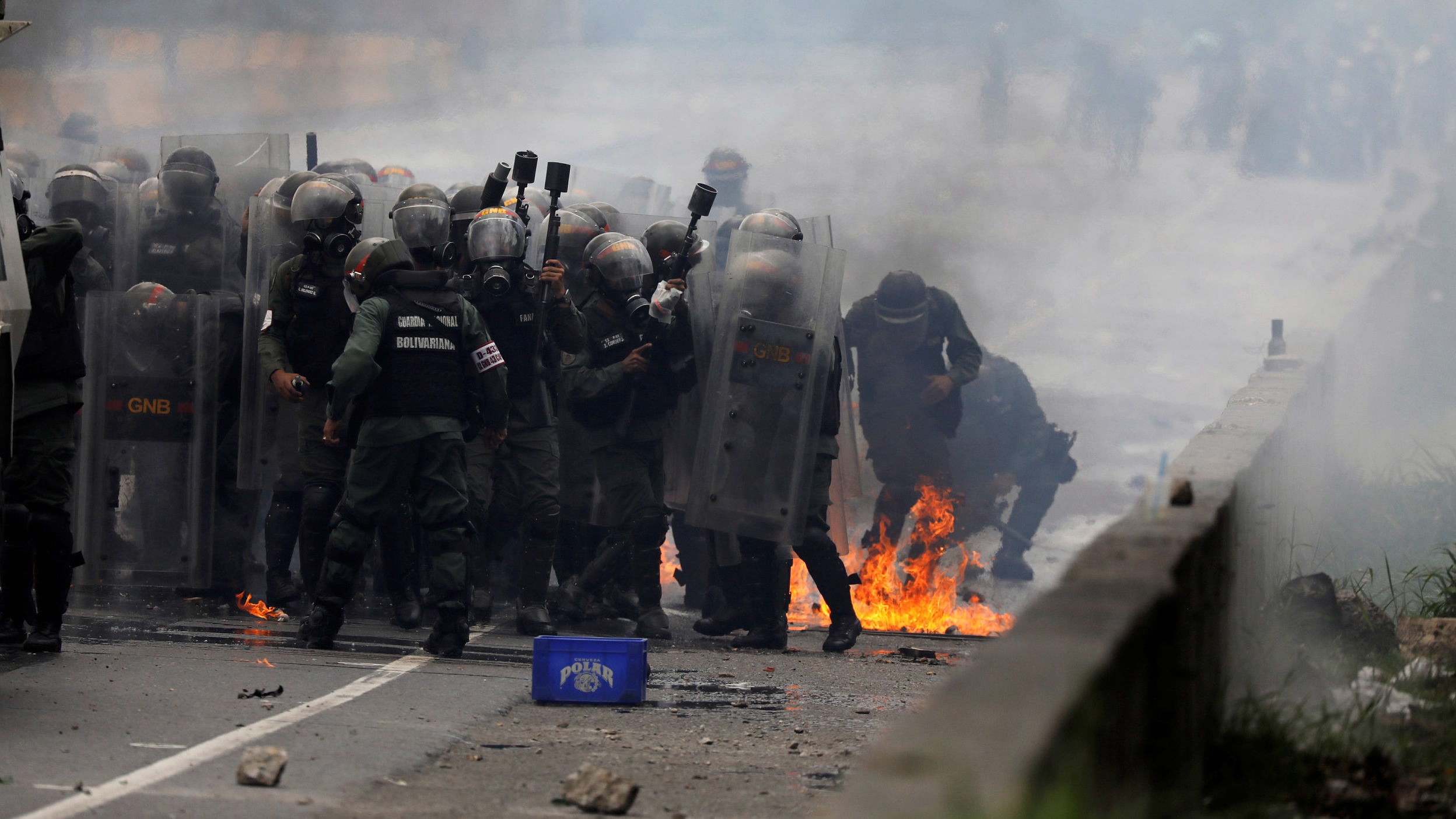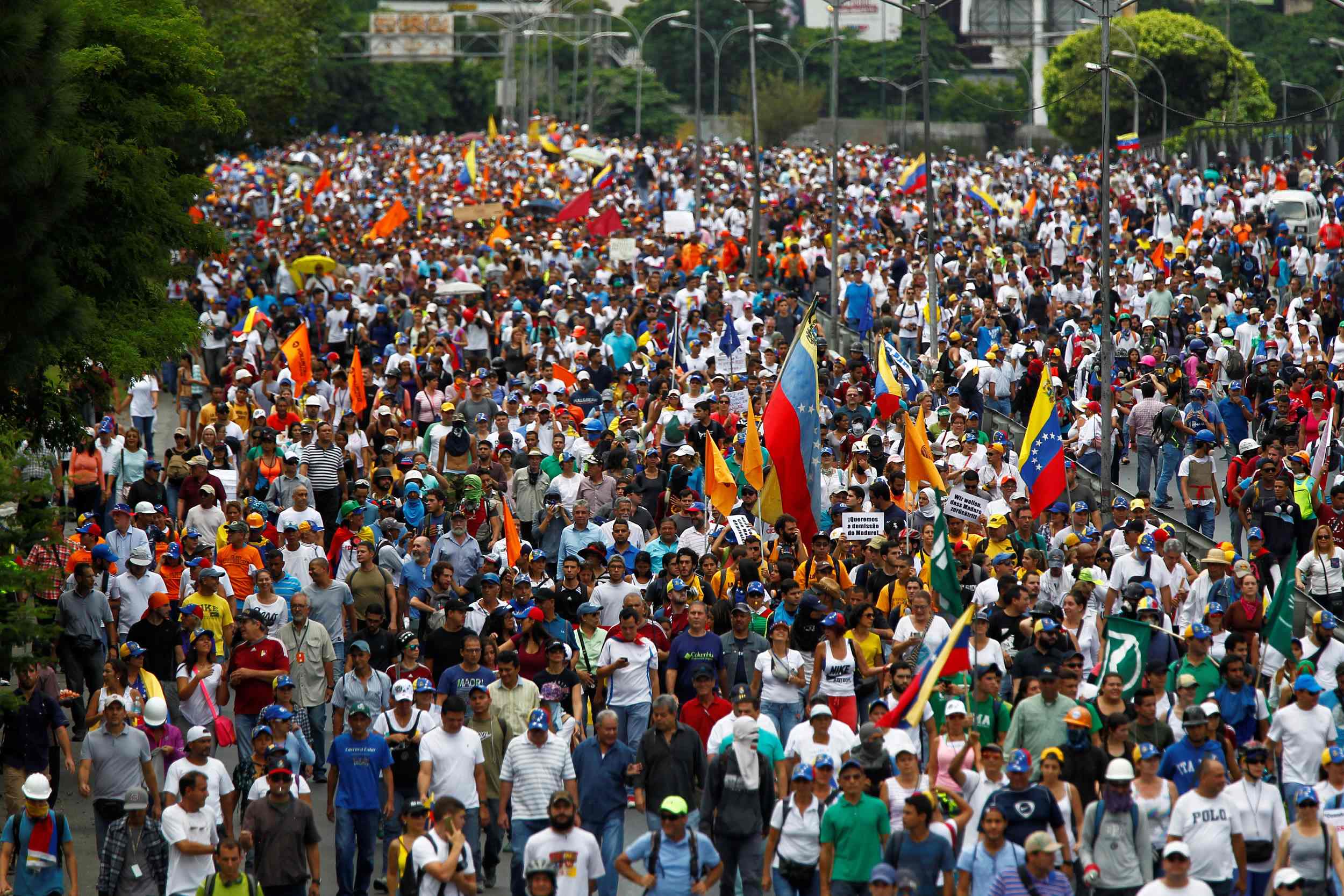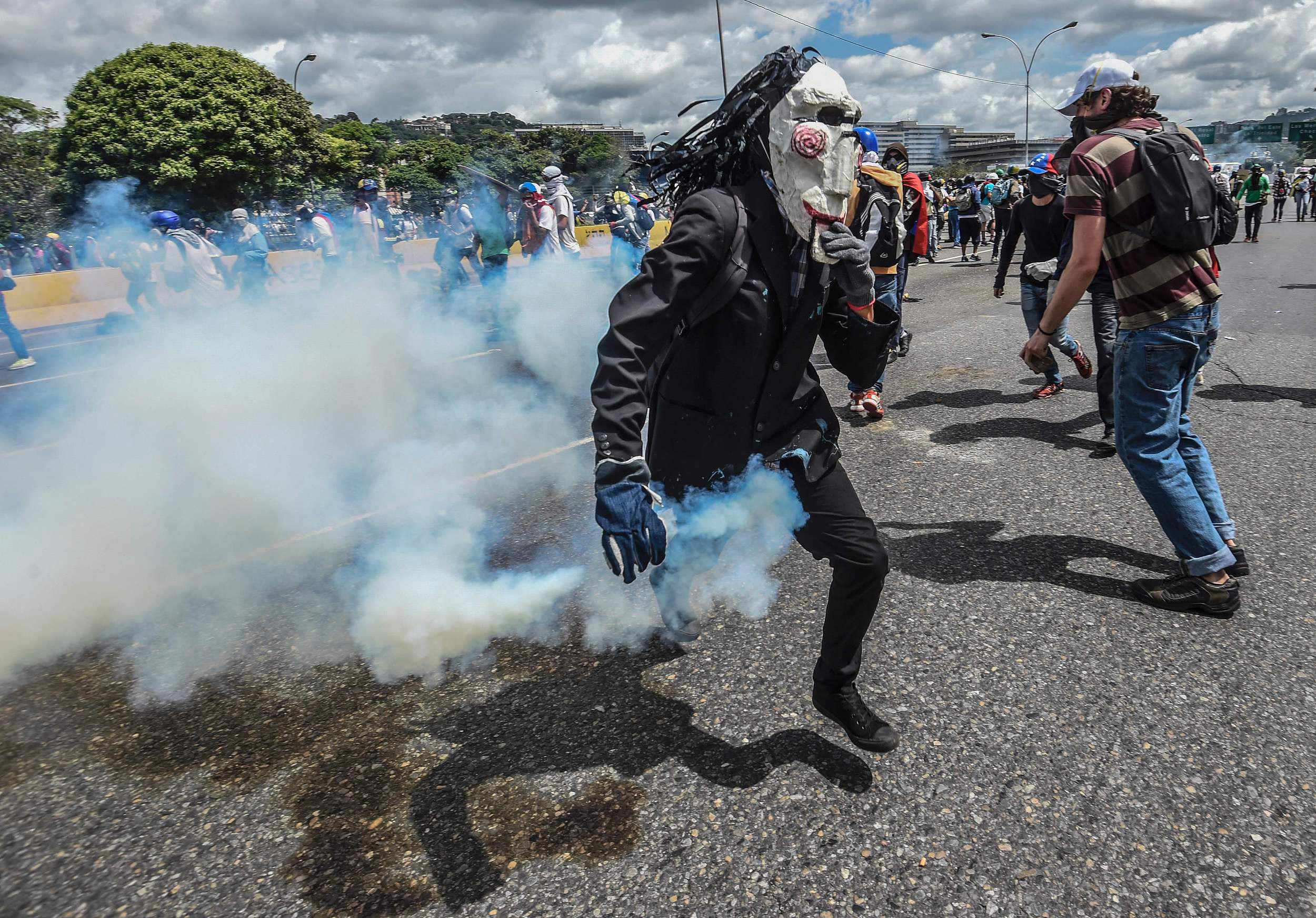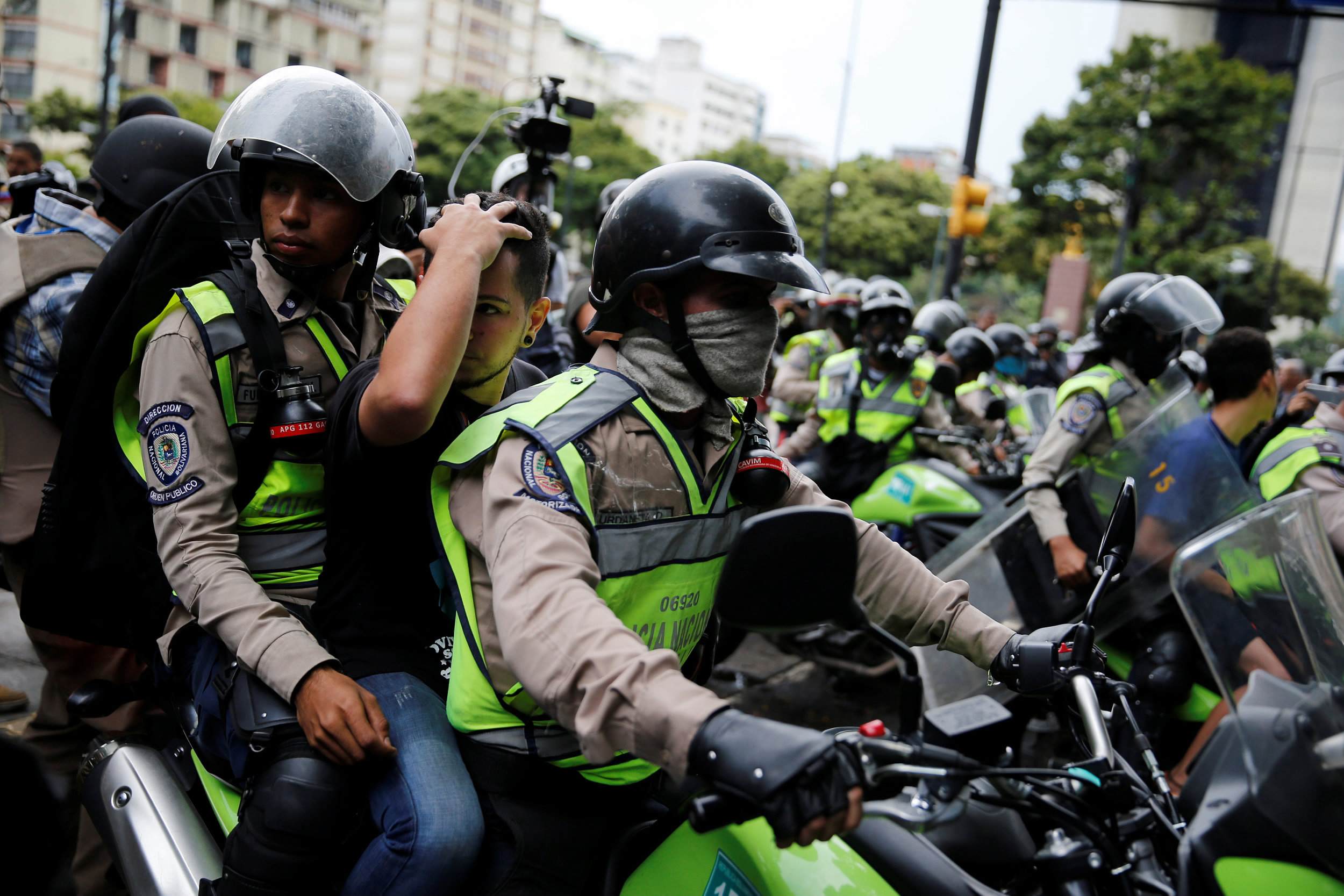
Politics
14:10, 20-Jun-2017
Venezuela's troubles expose South America's divisions

Ministers from the Organization of American States (OAS) met Monday to seek elusive solutions to the ongoing crisis in Venezuela, as the death toll from weeks of clashes at anti-government protests rose to 74.
New clashes broke out in the crisis-wracked South American nation Monday as protesters marked the 80th day in their current campaign to oust President Nicolas Maduro.
But hope for action is slim even within the OAS, a 34-nation policy-coordinating body whose members will have to bridge their deep distrust and ideological divisions to address the standoff.
Even if they do, the group - which Venezuela is in the process of quitting - has little in the way of hard power. Venezuela has descended into running street battles between anti-government protesters and Maduro's security forces and supporters since April 1, when the authorities moved to strip the powers of the opposition-majority legislature.

Opposition supporters rally against Venezuela's President Nicolas Maduro's government in Caracas, Venezuela, June 19, 2017. /VCG Photo
Opposition supporters rally against Venezuela's President Nicolas Maduro's government in Caracas, Venezuela, June 19, 2017. /VCG Photo
Those scenes played out again Monday, as riot police and soldiers used tear gas and water cannon to block demonstrators from marching on central Caracas. A 17-year-old boy was shot in the chest and killed in Altamira on the capital's east side, while six others were wounded by bullets, officials said.
The crisis has the rest of Latin America increasingly worried. In the Mexican resort city of Cancun, OAS foreign ministers tried but failed to reconcile two opposing proposals on Venezuela at the bloc's annual meeting this week.
On the side closer to Caracas' policies were Venezuela's leftist allies in the region and Caribbean countries that for years received discounted crude exports from the oil giant. They backed a domestic resolution to the crisis. On the opposite side were the United States, Canada, Mexico, Peru and Panama, which hoped to create a "contact group" on Venezuela - comprising countries that would seek to make Maduro's government respect the OAS democratic norms.

Opposition activists clash with riot police during an anti-government demonstration on a highway in Caracas on June 19, 2017. /VCG Photo
Opposition activists clash with riot police during an anti-government demonstration on a highway in Caracas on June 19, 2017. /VCG Photo
Pummeled by the plunge in oil prices since mid-2014, Venezuela is in the grip of an economic and political crisis that is causing desperate shortages of food, medicine and other basic essentials. Maduro's opponents accuse him of clinging to power by repressing opponents, eradicating checks and balances, and seeking to write a new constitution.
The leftist president says the crisis is a US-backed conspiracy. Venezuelan Foreign Minister Delcy Rodriguez angrily withdrew from the OAS meeting as the two sides sought to forge a third proposal that she said was sure to fail. "Venezuela recognizes nothing produced by this organization," she said.
Under the compromise proposal, the OAS would have called on Maduro to halt the constitution-drafting assembly he has convened, guarantee human rights and hold talks with the opposition, mediated by a group of countries.
"It's sad," said US Deputy Assistant Secretary of State Michael Fitzpatrick in Cancun. "We are looking forward to continuing the dialogue as an organization and as a member state," he said.
"We continue to extend our hand to the people of Venezuela and indeed to the government of Venezuela looking for a pacific and democratic solution."

Demonstrators are detained by riot security forces during a rally against Venezuelan President Nicolas Maduro's government in Caracas, Venezuela, June 19, 2017. /VCG Photo
Demonstrators are detained by riot security forces during a rally against Venezuelan President Nicolas Maduro's government in Caracas, Venezuela, June 19, 2017. /VCG Photo
No end in sight
Near-daily anti-government protests erupted in Venezuela on April 1, in the wake of a Supreme Court ruling stripping the powers of the opposition-majority legislature.
Since then, at least 74 people have been killed in clashes. More than 1,000 people have been injured so far, prosecutors say, and more than 3,000 arrested, according to rights group Forum Penal.
The OAS crisis talks are the latest in a series of foreign ministers' meetings that caused Maduro to announce Venezuela's withdrawal from the regional group in April - a process that will take two years. OAS Secretary General Luis Almagro, a vocal Maduro critic, warned there would be no immediate solution. "The issue of Venezuela will continue, because the crisis in Venezuela isn't going to end today, either."
(Source: AFP)
Related stories:

SITEMAP
Copyright © 2018 CGTN. Beijing ICP prepared NO.16065310-3
Copyright © 2018 CGTN. Beijing ICP prepared NO.16065310-3